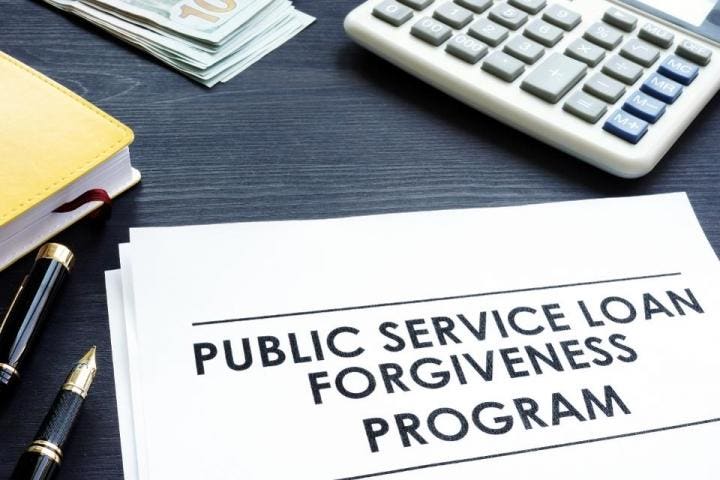Is your stance the government has not played any intentional role in this? Or is it they possibly have AND people need to take some personal accountability?
I’m not going to infer intentionality about the government. The fact that the process has some complexity to it and there are several steps that you have to take to qualify reminds me of other government systems. It's simply something to navigate. But as with most issues, it would be silly to be black and white about it.
But the post above wasn't about the government - it was about someone's encounter with a loan servicer. If the quoted statements are literally what they said to their servicer - that they are qualifying for loan forgiveness, then what do you expect a customer service representative from Nelnet or some other servicing company to say? If they have nothing to do with PSLF or the plethora of other loan forgiveness arrangements that are out there, and the customer didn't ask them any questions about it, "OK great" seems like a realistic response to someone calling and making a statement like that.
If there was more to it, like the person asking specific questions about PSLF and then not being referred to Fedloan or the official PSLF website for answers, then there'd be a problem. But it seems to me this is a person who came to the conclusion that they were getting loan forgiveness without actually checking it out. If that is the case, then this is also just another example of shoddy reporting out there, as the writer appears to be making the quotes fit their pre-determined narrative instead of looking for actual truth.
I know more than one person that heard about the program through word-of-mouth and just assumed that since they worked at the VA, that they would get loan forgiveness through PSLF. Never even asked questions or read about it. They were outraged when they realized they weren't making the right types of payments. Anger at the government for not forcing them to actually spend 10 minutes reading about the program. Still expect that the government should be repaying their loans. That's on them, that's not on the government or any loan servicer. It seems like this mentality is pretty pervasive - the expectation that the government is going to cover things for you and the details shouldn't matter. Like this idea to cancel everyone's student loan debt - nevermind those of us that chose to attend inexpensive schools despite opportunities available at expensive places, worked during school to mitigate interest, had roommates, or actually paid off loans. Let's forgive those 30K/year tuitions and fancy one bedroom suites and students who used their loan money to buy cars and go on vacations...
Could they do that for my mortgage? I have an expensive house and I don't want to keep paying every month.
Obviously, the student loan problem is multifactorial and costs have been ballooned by bloated amenities and administrations in higher education. I'm just stating that the students themselves taking out the loans bear responsibility, and if you are expecting loan forgiveness through a program like PSLF, read the documents/requirements! Anything less smacks of entitlement to me.



